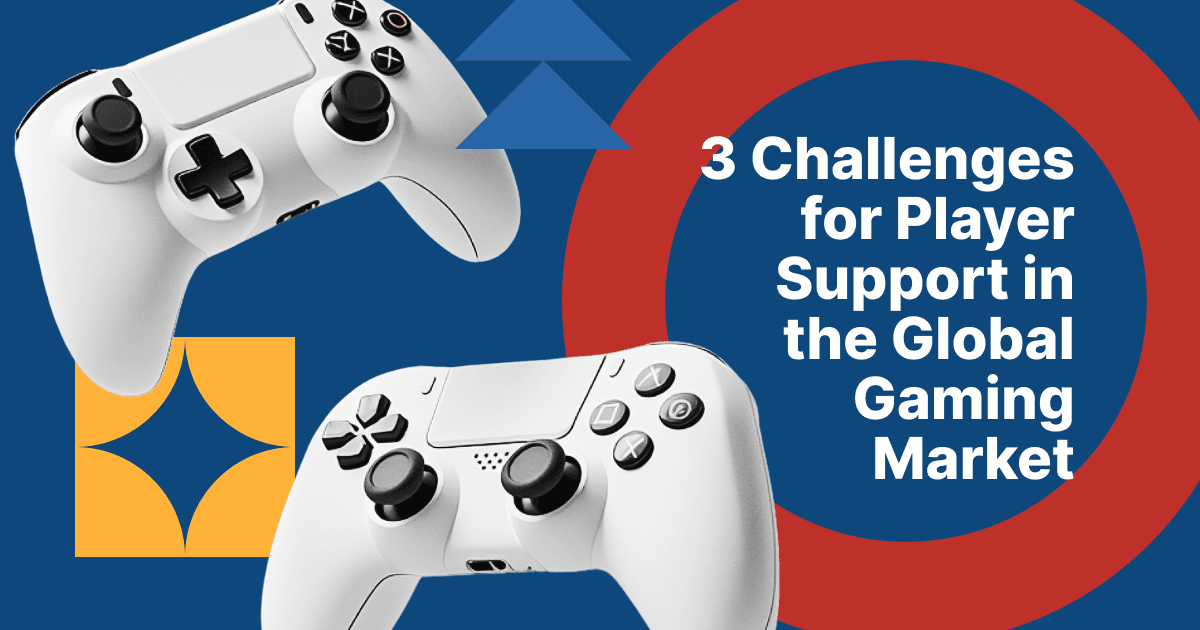The gaming industry in 2025 is a mix of rapid innovation and careful recalibration. New studios are finally launching their long-awaited titles, mobile gaming is surging ahead, and international markets are reshaping the landscape. At the same time, investment is tightening, competition is fiercer, and studios are being pushed to do more with less.
With growing player expectations, shifting financial realities, and the increasing complexity of global audiences, studios will need more than just great games—they need the right strategies, the right support, and the right team behind them.
New Studios Debut Their Titles
For years, the gaming industry has seen a wave of new studio formations, many founded by industry veterans branching out from major publishers. Now, in 2025, these studios are finally releasing their first major titles, bringing fresh ideas and exciting additions to the industry.
One standout example is Wanderstop, the debut title from a new studio led by Davey Wreden, creator of The Stanley Parable. Instead of the meta-narrative-heavy experiences he's known for, Wanderstop is a calming game about emotional healing through tea-making, proving that even established developers are taking risks on unexpected concepts.
In the sci-fi genre, Pistol Shrimp Games, co-founded by the creators of Star Control, is delivering Free Stars: Children of Infinity, an open-world space adventure building on the legacy of classic 4X storytelling.
Many of these studios were founded by industry veterans who left major publishers to create their visions. Now comes the real test: launching their games into a competitive marketplace.
As these new titles hit the market, expect to see a wave of fresh ideas, innovative mechanics, and a shake-up in established genres—but also a tougher battle for visibility in a space with countless options.
Surge in Mobile Gaming Popularity
In 2025, the gap between mobile and traditional gaming continues to widen with higher revenue, bigger investments, and an ever-expanding player base. Accessibility, free-to-play models, and constant content updates have cemented mobile as a dominant platform. Globally, players spent $82 billion in mobile game in-app purchases the previous year, with that number expected to continue rising.
Leading the charge are Chinese giants like Tencent and NetEase, whose mobile blockbusters like Honor of Kings and Knives Out continue to dominate international markets. No longer confined to China, these companies are expanding aggressively, localizing their top-performing games for Western and Southeast Asian audiences.
With AAA studios increasingly focusing on mobile development, we can expect bigger budgets, higher production values, and even more crossover between mobile and traditional gaming ecosystems.
International Growth and Cross-Cultural Titles
For players and developers alike, international expansion is changing what gaming looks like. Once-overlooked regions like Africa, Southeast Asia, and Latin America are now key contributors to industry growth, with Africa alone surpassing $1 billion in gaming revenue in 2024. The combination of cheaper smartphones, better internet access, and a growing appetite for interactive entertainment has made gaming more accessible, turning these regions into major market leaders.
While digital entertainment expanding to new markets is nothing new, the demand for culturally relevant content is also rising and finding positive reception even with non-native audiences.
A pivotal example of this shift is the success of Black Myth: Wukong, considered China's first ever triple-A game. Based on the classic Chinese novel Journey to the West, the game became one of the fastest-selling of all time, selling over 10 million copies within three days of its release. It reached a peak of 2.4 million concurrent players on Steam, becoming the most played single-player game of all time, surpassing records set by industry titans like Elden Ring and Cyberpunk 2077.
This success is a sign of more to come internationally, with African developers like Kiro'o Games and Maliyo Games looking to expand and create unique gameplay inspired by local culture. In 2025, we can expect to see more releases and development work on diverse titles from these emerging markets.
Cautious Investment Climate
The year 2025 is set to usher in a more cautious investment climate. Investors are now more selective, prioritizing well-developed prototypes, market-proven ideas, and sustainable business models.
The shift comes in response to several high-profile misses. In the wake of collapsed partnerships between studios and multimillion-dollar titles struggling to break even after launch, many publishers and developers are looking to rethink their funding strategies and scale back overly ambitious projects.
This new climate means that studios will need to bring more to the table early on to secure funding. Investors want polished demos, clear monetization plans, post-launch support strategies, and strong early traction. Games that lack a defined audience or a viable long-term strategy are now far less likely to secure funding, making it harder for unproven teams to get investment.
For developers, this isn't all bad news. The studios that do secure investment will be better positioned for long-term success, as funding is increasingly going toward projects with real staying power. The path for indie studios is also stronger than ever, with the Triple-I showcase event that debuted last year set to return in 2025. But for those relying on speculative funding
Major Release on the Horizon
The gaming world is on the edge of its seat as Grand Theft Auto VI gears up for its highly anticipated release in 2025. Analysts project that this installment could generate approximately $3.2 billion in its first year, with pre-orders alone expected to surpass $1 billion
This projection suggests that GTA VI might outpace major film blockbusters, underscoring the game's cultural significance. The series has a history of setting records; Grand Theft Auto V achieved over $1 billion in sales within its first three days.
Despite challenges in the gaming industry, such as rising development costs and market saturation, the anticipation for GTA VI remains high. The game's release is expected to be a pivotal moment, potentially revitalizing consumer interest and setting new benchmarks for success.
Thriving, Shifting, and Breaking Through
As 2025 unfolds, gaming is bigger, more diverse, and more competitive than ever. New voices and studios are breaking through, from indie teams to international developers expanding their reach. But the industry is also facing tougher financial scrutiny, rising development costs, and an increasingly crowded market.
For players, this means more variety, more experimentation, and games that push boundaries in both storytelling and mechanics. For developers, it's a year where success will come not just from big ideas but from execution, strategy, and adaptability.
How ModSquad Helps Studios Keep Up
With tighter budgets, growing international audiences, and rising player expectations, studios need the right team, tools, and strategies to stay ahead. That's where ModSquad comes in.
We help studios scale their support and moderation efficiently, ensuring that communities stay engaged, global player bases feel supported, and moderation is smart—not heavy-handed. Our multilingual player support, gaming-savvy mods, and flexible staffing models make it easier to keep up with industry shifts without overspending.
As gaming continues to evolve, we make sure studios have the support they need to focus on what matters most—building great games and thriving communities. Whether it's navigating international expansion, handling surges in player engagement, or keeping moderation aligned with game culture, we've got it covered.




